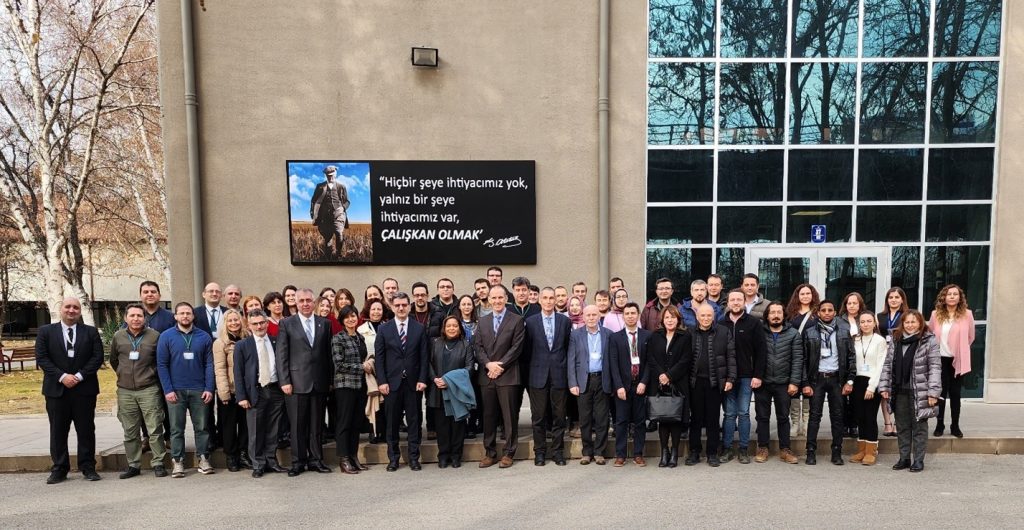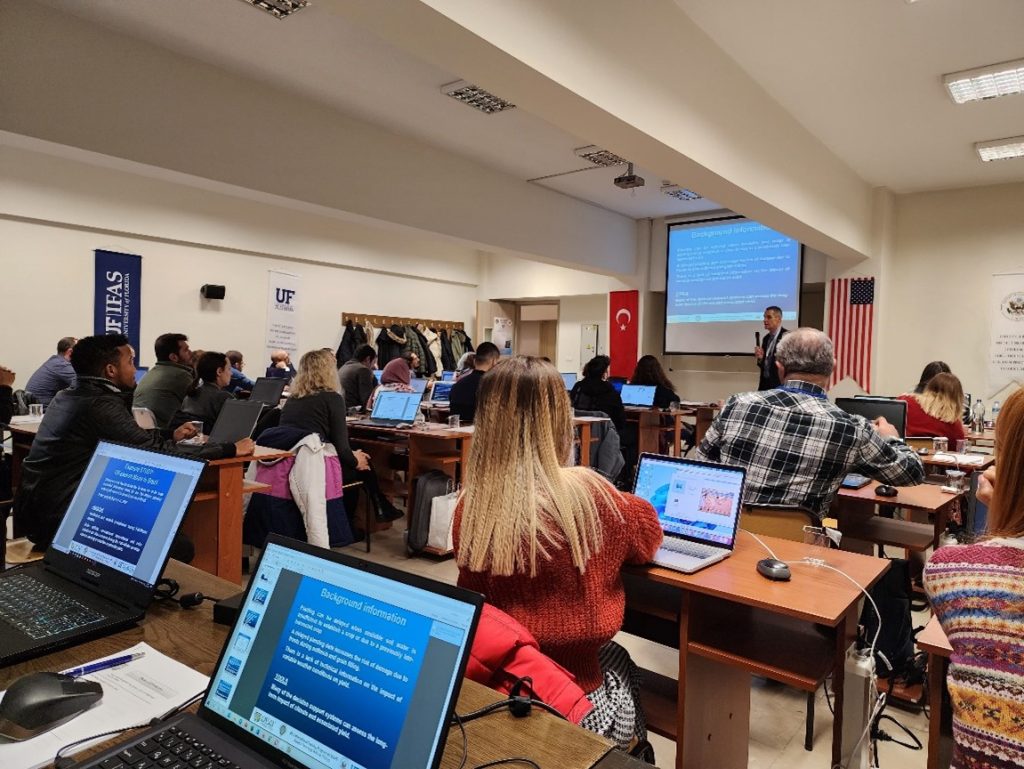Ankara University, in collaboration with the University of Florida, developed a project entitled “Capacity Building on the Dissemination of the Use of Agro-technological Decision Support Systems in Agriculture.” The project has been funded by the US Embassy in Türkiye under the auspices of a US-Türkiye bilateral Program. The project team includes seven scientists from Ankara University, the Turkish State Meteorological Service, Cannakale on Sekiz University, and the General Directorate of Agricultural Research and Policies (GDARP), as well as two scientists from the University of Florida. The project was initiated in 2023 and will end on December 31, 2023.
The overall aim of the project is to strengthen the cooperation between American and Turkish scientists to increase the use of innovative technologies in agricultural production, to optimize input costs, to facilitate mitigation of climate change, and to enhance the use of crop simulation models in Türkiye. The emphasis of the project is on capacity building and training of scientists in Türkiye. The first workshop was held from January 30 to February 3, 2023, at the Ankara University, Ankara, Türkiye.
Thirty-five participants from different institutions were selected to attend this training, including fifteen female and twenty male participants. The participants included academicians, experts from public institutions, young researchers, students, international organizations (FAO Türkiye), and private sector representatives.


The Turkish project team attended the 18th DSSAT Development Sprint as virtual participants and they traveled to the USA to participate in the 19th Development Sprint held in July at the International Fertilizer Development Center in Muscle Shoals, Alabama, USA to learn more about DSSAT development and advancement.

The second workshop was held from October 9 to 13, 2023, at Ankara University, Ankara, Türkiye. A total of 10 scientists participated in advanced training on assessing crop production, water and nutrient management, climatic risk, and environmental sustainability with simulation models.

Further meetings are planned with the participants to assist them with calibration and evaluation of the crop models of DSSAT, as well as with applications. It is expected that the workshop participants will be able to use DSSAT as a research, teaching and planning tool.
